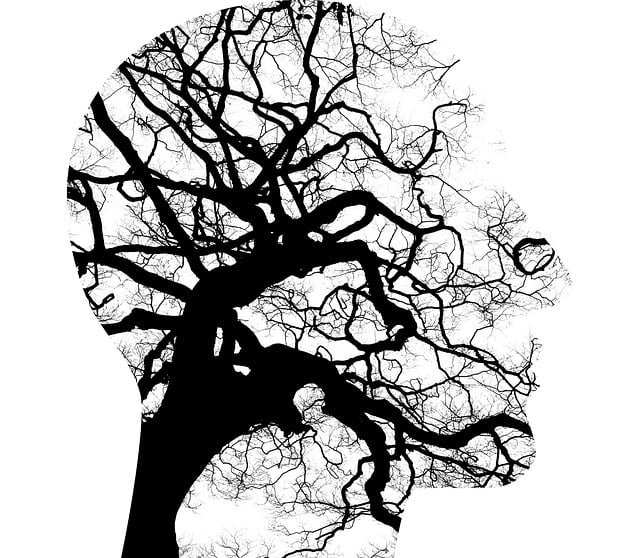Longmont Major Life Transitions Therapy (MLTT) offers a unique, evidence-based approach to trauma support, focusing on resilience and personal growth through Mind Over Matter principles, Compassion Cultivation Practices, and Empathy Building Strategies. This safe space helps clients rebuild self-esteem, enhance emotional intelligence, and navigate life's challenges healthily. MLTT is part of a comprehensive network providing tailored programs, including individual therapy, group support, EMDR, and social skills training. By fostering understanding and supportive communities, this approach promotes resilience at both individual and community levels, leveraging mental health policy advocacy and community engagement to ensure accessible, affordable care.
In a world where trauma impacts individuals and communities across diverse settings, understanding effective support systems is paramount. This article explores Longmont Major Life Transitions Therapy (LMLTT) as a foundational approach to trauma support, delving into its role in recognizing and addressing hidden wounds. We navigate the landscape of identifying trauma’s far-reaching effects, building robust networks, adopting evidence-based practices, and fostering community engagement. By examining these key components, we empower survivors and advocate for collective healing through LMLTT.
- Understanding Longmont Major Life Transitions Therapy: A Foundation for Trauma Support
- Identifying Needs: Recognizing Trauma and Its Impact on Individuals and Communities
- Building a Comprehensive Network: Key Components of Effective Trauma Support Services
- Evidence-Based Practices: Therapies and Interventions for Healing and Resilience
- Community Engagement and Advocacy: Empowering Survivors Through Collective Action
Understanding Longmont Major Life Transitions Therapy: A Foundation for Trauma Support

Longmont Major Life Transitions Therapy (MLTT) offers a unique and comprehensive approach to trauma support, providing individuals with powerful tools to navigate life’s challenges. This therapy is rooted in evidence-based practices that focus on fostering resilience and personal growth following traumatic experiences. By employing Mind Over Matter principles, MLTT empowers clients to challenge negative thought patterns and develop healthier coping mechanisms.
The program incorporates Compassion Cultivation Practices and Empathy Building Strategies, creating a safe space for individuals to explore their emotions, understand their traumas, and cultivate compassion towards themselves and others. Through these methods, Longmont MLTT helps clients rebuild their sense of self, enhance their emotional intelligence, and restore a sense of control over their lives. This supportive environment is designed to facilitate healing and promote long-lasting positive changes.
Identifying Needs: Recognizing Trauma and Its Impact on Individuals and Communities

Identifying needs is a critical step in providing effective trauma support services. Recognizing trauma and its far-reaching impact on individuals and communities is essential to understanding the diverse support requirements within various populations. Trauma, often resulting from adverse experiences or significant life events, can manifest in numerous ways, affecting mental health, physical well-being, and overall community resilience. By sensibilizing and educating ourselves about these impacts, we lay the groundwork for tailored interventions.
Longmont Major Life Transitions Therapy plays a pivotal role here, offering specialized services to address the unique challenges faced by individuals navigating traumatic experiences. This approach recognizes that trauma doesn’t just affect the individual but also permeates community dynamics, influencing social interactions and collective well-being. Incorporating Mental Health Education Programs Design and Stress Management Workshops Organization within these therapy frameworks can empower individuals with coping skills development, fostering resilience and enabling healthier responses to stressful situations.
Building a Comprehensive Network: Key Components of Effective Trauma Support Services

Building a comprehensive network for trauma support services involves integrating diverse components to effectively address complex needs. Longmont Major Life Transitions Therapy plays a pivotal role in this process by offering specialized programs tailored to individuals navigating traumatic experiences. A robust system includes access to Mental Health Awareness professionals who can provide individual therapy, group support sessions, and evidence-based practices such as EMDR (Eye Movement Desensitization and Reprocessing) to help clients process and heal from trauma.
Moreover, incorporating Social Skills Training is essential to foster connections and enhance coping mechanisms. Empathy Building Strategies, when integrated into the network, promote understanding and supportive environments. This holistic approach ensures that individuals receive comprehensive care, addressing not only their mental health but also their social and emotional well-being, ultimately contributing to healthier and more resilient communities.
Evidence-Based Practices: Therapies and Interventions for Healing and Resilience

Trauma support services have evolved to incorporate a range of evidence-based practices that focus on healing and fostering resilience among individuals who have experienced traumatic events. Longmont Major Life Transitions Therapy, for instance, is an approach that recognizes the impact of trauma on mental health and daily functioning. This therapy provides a safe space for clients to explore their emotions, process memories, and develop coping strategies tailored to their unique needs. By combining elements of cognitive-behavioral therapy (CBT), eye movement desensitization and reprocessing (EMDR), and other effective interventions, therapists help individuals regain control over their lives after traumatic experiences.
In addition to these direct therapeutic methods, promoting healthy coping mechanisms such as conflict resolution techniques and stress management strategies is integral to trauma support. Mental Health Policy Analysis and Advocacy plays a crucial role in ensuring that individuals have access to quality care and resources. By understanding the broader systems and policies affecting mental health services, advocates can push for changes that improve accessibility, affordability, and effectiveness of treatment options. This holistic approach, which combines therapy, education, and policy advocacy, contributes to building resilience not only at the individual level but also within communities affected by trauma.
Community Engagement and Advocacy: Empowering Survivors Through Collective Action

Community engagement plays a vital role in trauma support, especially when it comes to empowering survivors and fostering healing. By bringing people together, communities can create safe spaces where individuals affected by traumatic events can find solace and support. This collective action is a powerful tool for recovery, allowing survivors to share their experiences, connect with peers, and develop a sense of belonging. The Longmont Major Life Transitions Therapy center, for instance, has initiated community engagement programs that facilitate open dialogues about trauma, reducing the stigma associated with seeking help and encouraging early intervention.
Through advocacy and collective efforts, communities can drive positive change in mental healthcare practices. This includes promoting cultural sensitivity within healthcare settings to ensure every individual receives tailored support. Additionally, organizations like the Stress Management Workshops offer valuable resources for building inner strength and coping mechanisms, empowering survivors to navigate life’s challenges with resilience. By combining community engagement, advocacy, and access to specialized services, individuals can find the support needed to recover from trauma and thrive in their personal journeys.
Longmont Major Life Transitions Therapy (MLTT) provides a robust foundation for trauma support services, addressing individual needs and community impact. By integrating evidence-based practices and fostering community engagement, MLTT empowers survivors to heal and build resilience. Recognizing the importance of comprehensive networks, this approach ensures that every Longmont resident affected by trauma has access to the resources they need. Through collective action and advocacy, we can create a more supportive environment, where healing becomes possible and lives are transformed.













